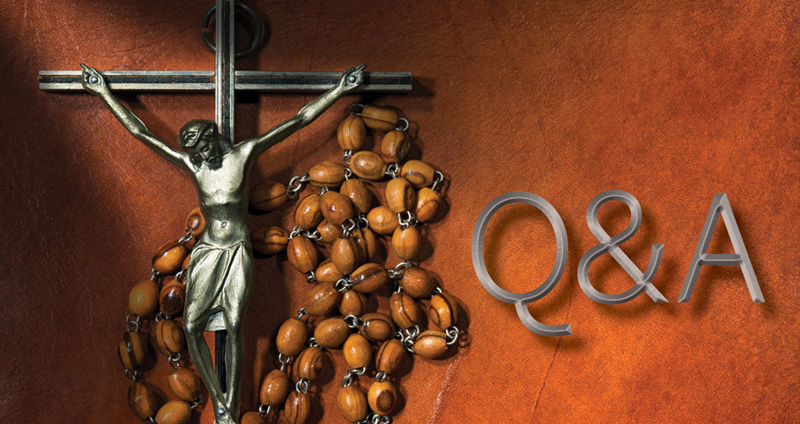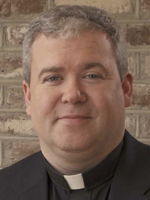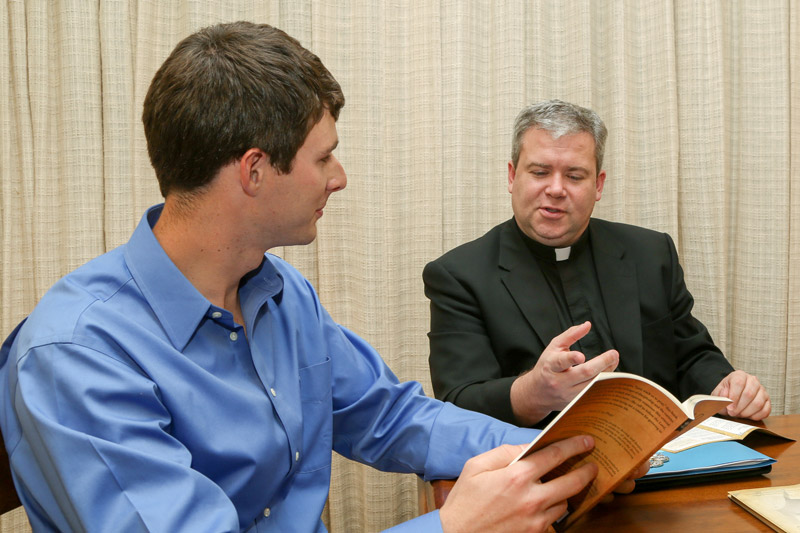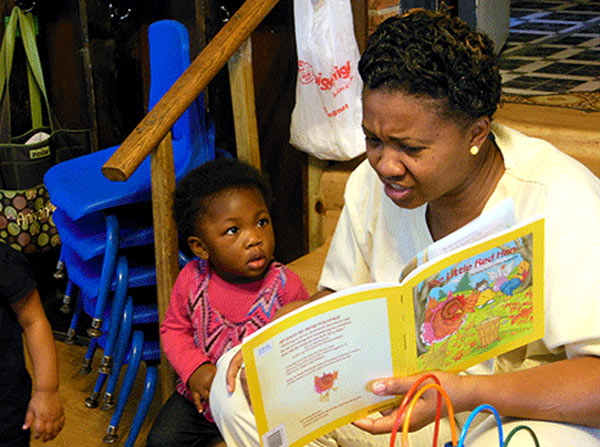
Q: A while ago, we heard the Gospel at Mass tell us to “call no one your father.” With this teaching, why do we call our priests “Father”? (Bluffton, SC)
A: Thank you for your question. Let’s start with the obvious: The man who helped give each of us life is called our father. St. Paul refers to such men as “fathers” and describes their duties in Ephesians 6:2-4.
But if we choose to interpret this passage literally, then we’ve already reached a dead end. We must also consider those who would stretch the literal meaning to say that Jesus was only denouncing titles for religious leaders. But this clarification isn’t in the actual teaching of the Lord. He said not to call anyone your father. If we make adjustments, then we are showing the passage needs some context.
In his public ministry, Jesus refers to the patriarchs as “father” (cf. John 4:12).
St. Paul refers to Abraham as father seven times in the Letter to the Romans, and St. James also refers to him as “father” in his letter. So we’re beginning to see a broader context.
Additionally, in the First Letter of St. John, church leaders are called “fathers” (2:13-14). More clearly, in the First Letter to the Corinthians, St. Paul calls himself “father.” He writes: “I do not write this to make you ashamed, but to admonish you as my beloved children. For though you have countless guides in Christ, you do not have many fathers. For I became your father in Christ Jesus through the Gospel” (4:14-15).
This context, therefore, helps us understand the Lord’s teaching in Matthew 23. It shows us that the Lord Jesus was not denouncing titles, since he himself and his early followers used them, but was actually denouncing pride and pomposity.
The Lord was cautioning against titles that merely elevate a person rather than directing people to God.
Thus, the Catholic custom of calling priests “father” is a very biblical practice. It’s one that helps us understand the priest’s fatherly role in drawing us closer to God our Heavenly Father.
Q: American flags are ceremonially burned when they are old or torn. How are blessed rosaries disposed of when they are old or broken? Should they be buried or thrown into water? (Myrtle Beach, SC)
A: Sacramental objects, such as rosaries, are reminders to us of God’s presence and an aide to us in our discipleship as we seek to pray, exercise virtue, and serve others in Christ’s name. When they are blessed, they are to be treated with reverence. I’m grateful for your question since blessed objects should never be thrown in the garbage or discarded without thought.
The Church, therefore, recommends that when blessed objects are no longer able to be used, they should be respectfully burned or buried.
Q: I think a lot of the postures at Mass are absurd. It’s like “Catholic calisthenics.” I’ve traveled around Italy and France and many places in the world do not have so much movement in the Mass. Why we do in America insist on continuing the apparently unnecessary, rapid-fire, down, kneel, repeat? (Greer, SC)
A: The postures at Mass are representative of the spiritual sentiments we should have in our hearts during the different parts of the Mass. They are to guide our focus and dispositions during the liturgy.
For example, standing is a traditional posture of supplication, sitting designates listening, and kneeling denotes adoration.
Rather than worrying about our postures being mere calisthenics, it might help us look at the meaning of each posture and how it can help us worship God more devoutly and attentively.
Father Jeffrey Kirby is administrator of Our Lady of Grace Church in Lancaster. Because he is moving on to other projects after the summer months, Father Kirby is no longer taking questions for this column.




